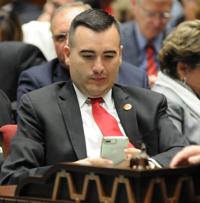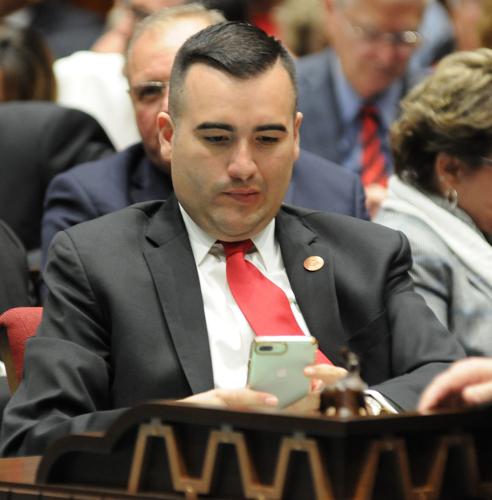PHOENIX т State Rep. David Stringer resigned late Wednesday in the face of a probe by the House Ethics Committee into his 1983 arrest on charges including child pornography and recent charges that he made racially offensive comments.
The Prescott Republican sought and then withdrew a legal bid to quash subpoenas issued by the committee to produce documents. The panel also wanted Stringer to submit to an interview with committee investigators Friday.
There was no immediate comment from Stringer, who submitted a one-sentence resignation letter effective at 4 p.m. Wednesday, an hour before the deadline given by the Ethics Committee to produce the documents.
House Speaker Rusty Bowers said the resignation ends any further investigation into Stringerтs actions.
It also means the panel will not release a formal report on what it has found. But House GOP spokesman Matt Specht said the committee will release public documents it gathered during the investigation тas soon as possible.т
People are also reading…
Stringerтs decision came amid legal questions about whether Maricopa County Superior Court Judge Rosa Mroz would have granted his petition to have the subpoena for documents quashed. Stringer also had asked Mroz to issue an injunction barring the House from ejecting him for failing to comply with the demand.
That was likely an uphill battle, as courts in general are loath to interfere with how the Legislature, a separate branch of government, conducts its internal business.
Wednesdayтs unexpected action sets the stage for Republican precinct committeemen in Yavapai County to nominate three people to replace Stringer. The county board of supervisors will make the final pick.
With the Ethics Committee canceling its probe, there is unlikely to be any public disclosure of exactly what happened when, it was recently disclosed, Stringer was arrested in Maryland in 1983.
A court record obtained by New Times showed an arrest on multiple charges. Carmen Chenal, Stringerтs attorney, said the child-pornography charge was dismissed due to lack of evidence.
As to the others, there was some sort of court proceeding where Stringer was placed on probation for five years, required to perform community service and ordered to seek treatment at a clinic for sexual disorders.
After the probation period, the conviction was expunged and the records were sealed.
Chenal said what the court eventually found was not really serious, pointing out that the District of Columbia Bar Association, which licensed Stringer to practice law there, reviewed the records and concluded there was тno moral turpitude.т
But Chenal declined to release the entire two-paragraph findings from the D.C. bar to the Ethics Committee, saying those records were produced under a promise of confidentiality. She conceded that the material contained some findings that тcould be misconstruedт and might be politically damaging to her client.
Rep. Kelly Townsend, R-Mesa, who filed the Ethics Committee charge associated with that incident, said it was important for lawmakers to know what actually happened.
The other charge against Stringer began with statements he made last year to a meeting of the Republican Menтs Club.
Among those comments were that immigration represents тan existential threat to the United States,т that Americaтs тmelting potт exists for тpeople of European descent,т and that immigrants from south of the border donтt assimilate because they maintain connections with their home countries.
Despite calls for him to resign, including from Republican Gov. Doug Ducey, Stringer won re-election.
But a month later, Stringer was taped making comments to УлшжжБВЅ State University students saying that African-Americans тdonтt blend inт because, unlike immigrants of European descent, they тalways look different.т
That led Rep. Reginald Bolding, D-Laveen, to seek an immediate vote in January to expel Stringer. When that failed, Bolding filed his own Ethics Committee complaint.

















